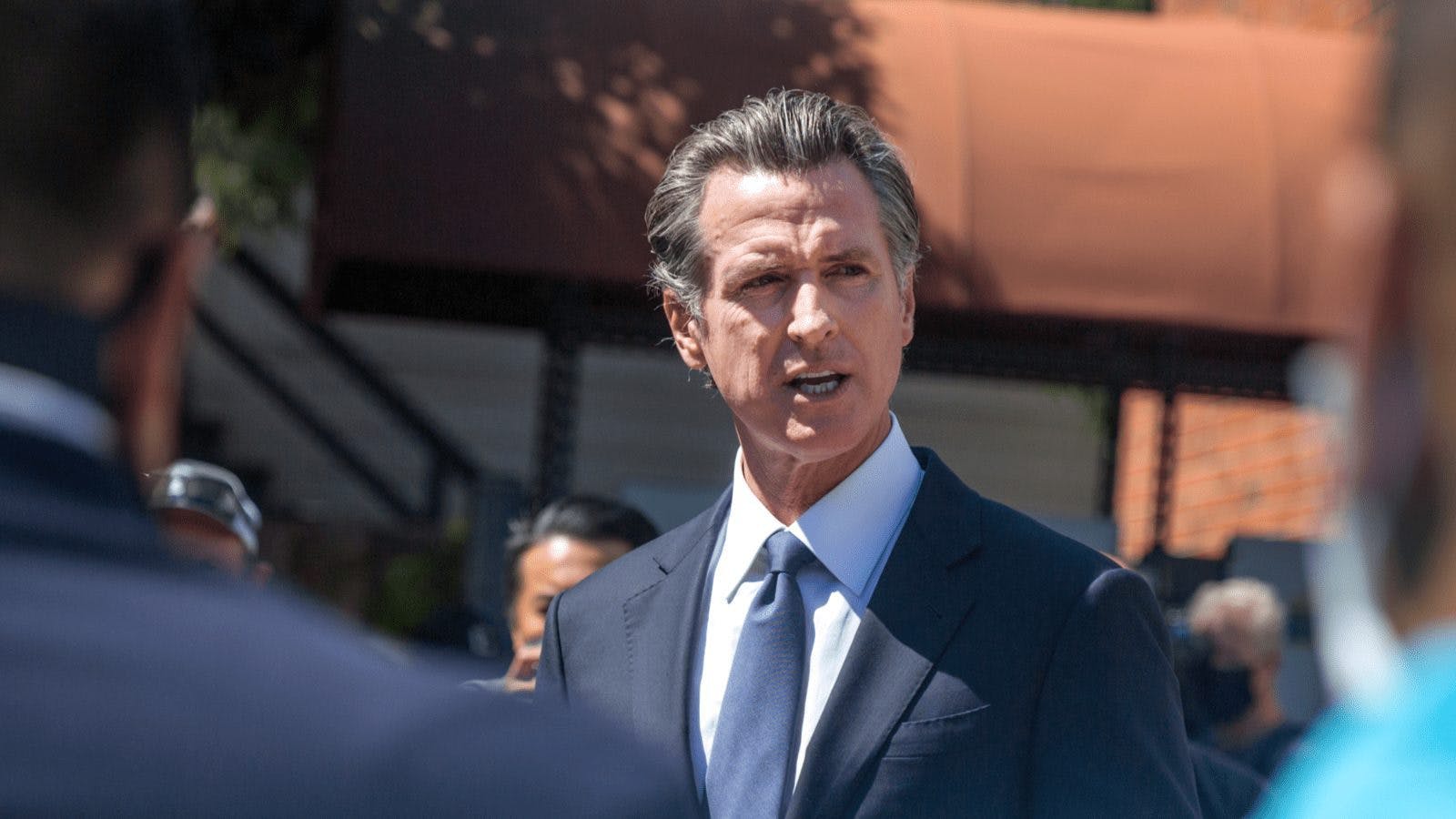California Unveils Crypto Executive Order as Competition for US Crypto Capital Builds
The world’s fifth-largest economy is positioning itself to become a hub for the digital asset industry

California Governor Gavin Newsom | Source: Shutterstock
- The governor’s latest executive order looks to create transparent regulation around digital assets
- The state is hoping to align itself with upcoming policy from the federal government
The state known as a bastion of technology and an economy that dwarfs many a nation is warming up to digital assets — and the need to regulate them, specifically.
Gov. Gavin Newsom signed an executive order Wednesday aimed at establishing regulatory guidelines around the digital asset industry that protect investors while fostering innovation, Newsom’s office said in a statement.
“California is a global hub of innovation, and we’re setting up the state for success with this emerging technology – spurring responsible innovation, protecting consumers, and leveraging this technology for the public good,” Newsom said. “Too often government lags behind technological advancements, so we’re getting ahead of the curve on this, laying the foundation to allow for consumers and business to thrive.”
The executive order builds on President Biden’s recent moves to bring regulatory clarity to the emerging asset class, according to Newsom, with the hopes of positioning California ahead of the curve in terms of looming federal policy.
Newsom’s gambit comes as mayors in New York and Miami are maneuvering to roll out crypto-friendly regulations that could establish their metropolitan areas as the US’ crypto hub.
Denelle Dixon, CEO of the Stellar Development Foundation, told Blockworks it’s a “huge win” to see California take blockchain rule-making seriously, especially when it comes to job creation.
“Best known as the home of Web2, the governor’s call today was a move toward a Web3 future,” Dixon said.
Under the executive order, California officials are tasked with soliciting feedback from industry participants, as well as the public, the statement said. Lawmakers are also set to consider how blockchain technology could be used to address public — and policy — needs.
New York, meanwhile, is considering a bill that could curtail proof-of-work mining, namely, bitcoin. Illinois lawmakers have introduced a measure that would allow the department of revenue to accept crypto payments, while Colorado’s governor pushes for cryptocurrency tax payments.
“Like many things in United States politics, crypto regulation trickles up from the states,” Ron Hammond, director of government affairs for the Blockchain Association, said. “A lot of battles we see happening at a state level do trickle up to the [federal level].”
Get the news in your inbox. Explore Blockworks newsletters:
- The Breakdown: Decoding crypto and the markets. Daily.
- 0xResearch: Alpha in your inbox. Think like an analyst.






